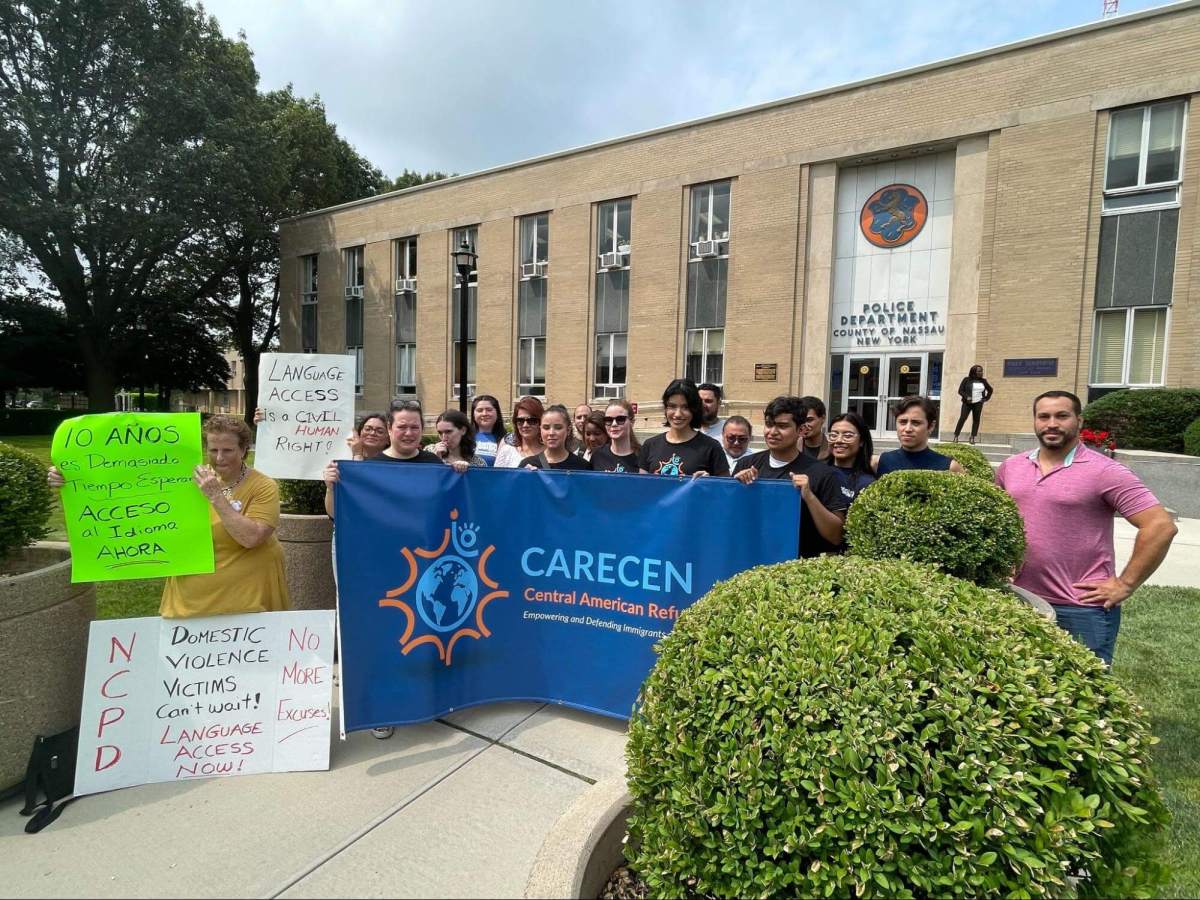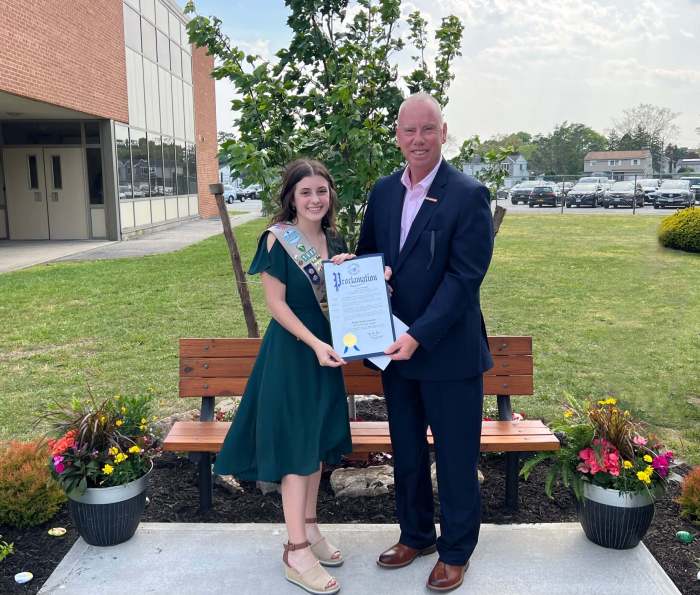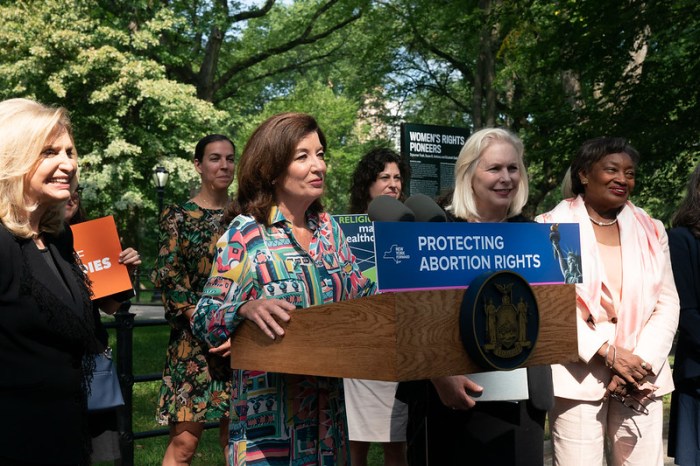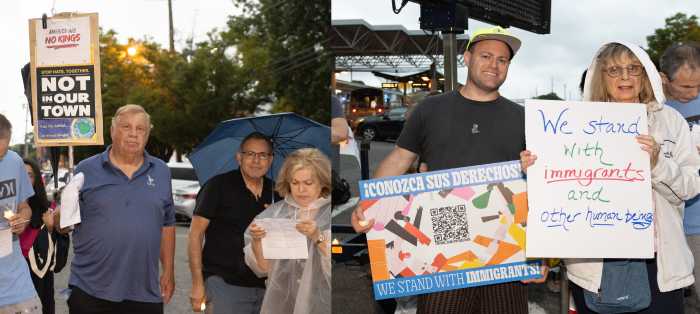A decade ago, then-Nassau County Executive Ed Mangano passed two executive orders — orders 67-2013 and 72-2013 — guaranteeing the public improved language access services. Now, a lawsuit has been filed against Nassau County and its police department for allegedly failing to follow through on those orders.
“Ten years is too long to wait,” speakers said at a news conference in front of Nassau County Police Department (NCPD) Headquarters on Tuesday, addressing the federal lawsuit, which was filed by Latino Justice PRLDEF on July 17.
Latino Justice PRLDEF is a civil rights organization that, according to its website, “uses and challenges laws to create a more just and equitable society.”
Latino Justice is seeking system-wide reform of Nassau County Police Department’s language-access practices to ensure that Nassau County community members receive all necessary services regardless of their English proficiency.
“In a county where more than 30% of residents speak a language other than English at home, it is unfathomable that the Nassau County Police Department conditions its provisional assistants on an individual’s ability to speak English,” Meena Oberdick, an attorney with Latino Justice PRLDEF, said.
Oberdick claims that NCPD has consistently ignored the law and its own written policies by denying assistance to limited English-proficient community members.
An individual who is a plaintiff in the lawsuit said she was a victim of a domestic dispute and was denied her rights to language access interpreters in an interaction with NCPD officers. The community member — who wished to be identified as “Ms. C” — said that when she called the police, she hoped to be provided with a Spanish-speaking interpreter. Instead, she claimed the police came to her house and spoke with her eight-year-old daughter about what had happened to her.
“I was very upset that my daughter had to recount the incident without understanding, without processing what had happened,” Ms. C said. “In a country where a large part of the population speaks Spanish, it is incomprehensible that there is no assistance in Spanish either through interpreters or Spanish-speaking police.”
Last year, during an audit by the New York Immigration Coalition and the Long Island Language Advocates Coalition assessing NCPD’s ability to provide language access in Spanish, 94 calls were made to NCPD. Arlo Fleischer, an organizer with the Nassau chapter of the New York Civil Liberties Union, said that out of all of the calls made, nearly half of them could not get the information that they needed.
“The department needs qualified, certified interpreters and translators — not officers who determine for themselves if they are qualified, which is currently the case,” Fleischer said.
The Nassau County Police Department did not immediately return a request for comment.


































